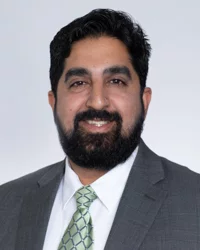SB 863 attempted to improve the delivery of medical benefits to Applicants by mandating the use of evidence based medicine via Utilization Review (UR) and Independent Medical Review (IMR). Given the law of unintended consequences, this has brought us to the wonderful world of expedited hearings and Dubon challenges that we now routinely face. Fortunately, recent panel decisions have provided guidance and clarified the procedural and jurisdictional issues related to UR, IMR and objections to validity of UR denials.
In Dubon v. World Restoration, Inc. (2014) CCC 198 (Dubon II), the WCAB clarified the relationship between the WCAB and the UR, IMR processes. It held in this en banc decision that:
-
- A UR decision is invalid and not subject to IMR only if it is untimely.
- Legal issues regarding the timeliness of a UR decision must be resolved by the Workers’ Compensation Appeals Board, not IMR.
- All other disputes regarding a UR decision must be resolved by IMR.
- If a UR decision is untimely, the determination of medical necessity may be made by the WCAB based on substantial medical evidence consistent with Labor Code section 4604.5.
Pursuant to Dubon II, when faced with a DOR for expedited hearing, the adjuster and defense attorney can first limit their analysis to whether the UR decision was timely issued. Whether the requested treatment is medically reasonably necessary based upon substantial evidence is decided only after the untimeliness of UR has been established. At that point, the burden is on the Applicant to show the reasonable necessity of the disputed requested treatment. If the UR decision is shown to be timely, the parties are limited to IMR to decide the treatment dispute.
In Bodam v. San Bernardino County/Department of Social Services (2014) 2014 Cal. Wrk. Comp. LEXIS 156 the court, in a significant panel decision, discussed what deficiencies cause UR decisions to be untimely. While significant panel decisions are not binding precedent, they are citable and adopted as far as their reasoning is determined persuasive.
The court held:
-
- A defendant is obligated to comply with all time requirements in conducting UR, including the timeframes for communicating the UR decision;
- A UR decision that is timely completed but is not timely communicated is untimely;
- When a UR decision is untimely and, therefore, invalid, the necessity of the medical treatment at issue may be determined by the WCAB based upon substantial medical evidence.
Labor Code section 4610 lists the time limits for issuance and communication of an UR decision.
For prospective UR decisions, “they must be made not to exceed five working days from the receipt of the information reasonably necessary to make the determination, but in no event more than 14 days from the date of the medical treatment recommendation by the physician”. LC 4610(g)(1).
UR decision must also “be communicated to the requesting physician within 24 hours of the decision. Decisions resulting in modification, delay, or denial of all or part of the requested health care service shall be communicated to physicians initially by telephone or facsimile, and to the physician and employee in writing within 24 hours for concurrent review, or within two business days of the decision for prospective review, as prescribed by the administrative director.” LC 4610 (3) (A) (bold, underline added)
Obtaining documentation of communication of UR decisions is now a crucial step in preparation for expedited hearings. Proofs of service and fax confirmations of the communication are invaluable. Please remember, however, that even if the UR timelines are not met, the burden is on the applicant to establish that the necessity of the disputed course of treatment is supported by substantial medical evidence.
UR is a wonderful defense weapon to protect against misuse and overuse of medications, therapies, procedures, etc. However, these defenses disappear if the UR is untimely. Want to make sure that only reasonable and necessary treatment is provided? Keep a close eye on your calendar!
Harry S. Chahal is an Partner in Bradford & Barthel’s Los Angeles office. Please contact him with any questions at (310) 981-5004 or hchahal@bradfordbarthel.com
Viewing this website does not form an attorney/client relationship between you and Bradford & Barthel, LLP or any of its attorneys. This website is for informational purposes only and does not contain legal advice. Please do not act or refrain from acting based on anything you read on this site. This document is not a substitute for legal advice and may not address every factual scenario. If you have a legal question, we encourage you to contact your favorite Bradford & Barthel, LLP attorney to discuss the legal issues applicable to your unique case. No website is entirely secure, so please be cautious with information provided through the contact form or email. Do not assume confidentiality exists in anything you send through this website or email, until an attorney/client relationship is formed.


